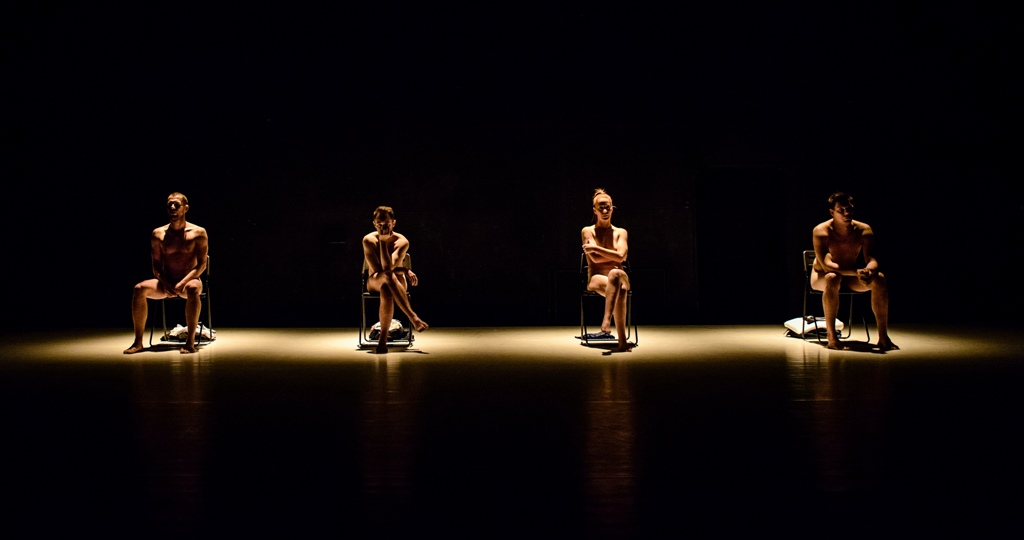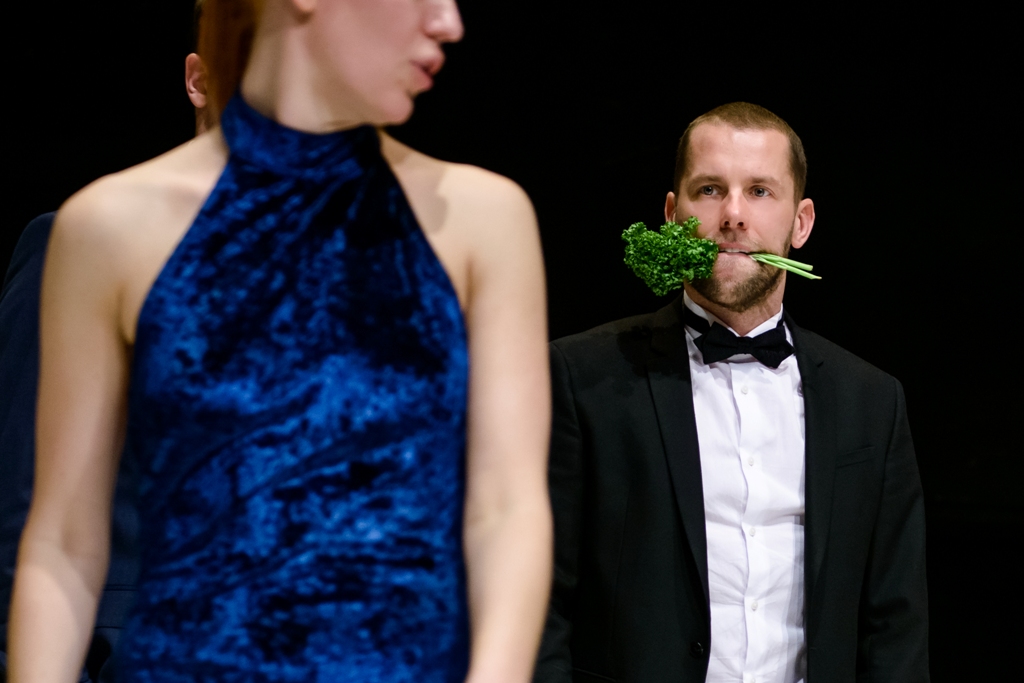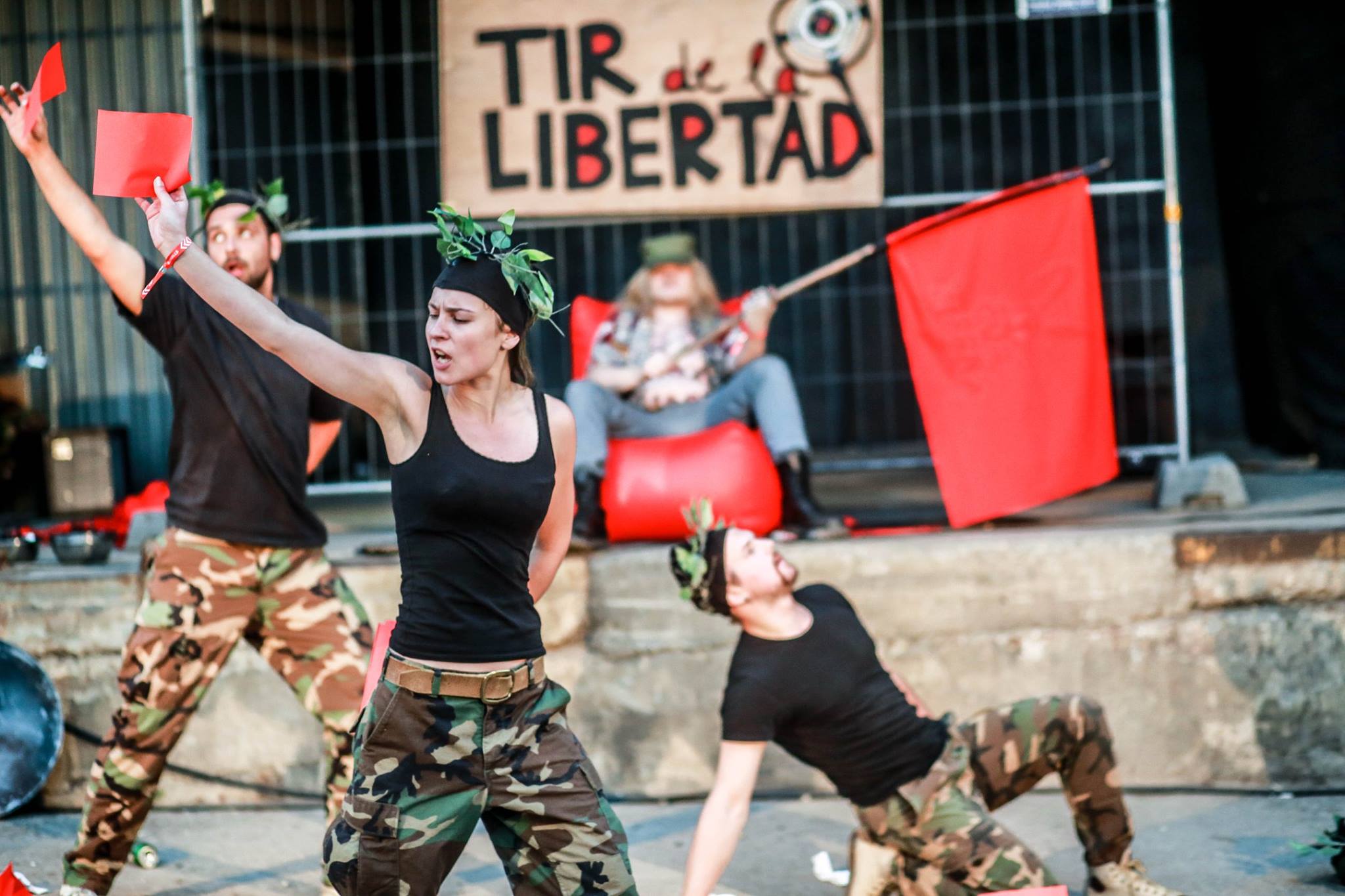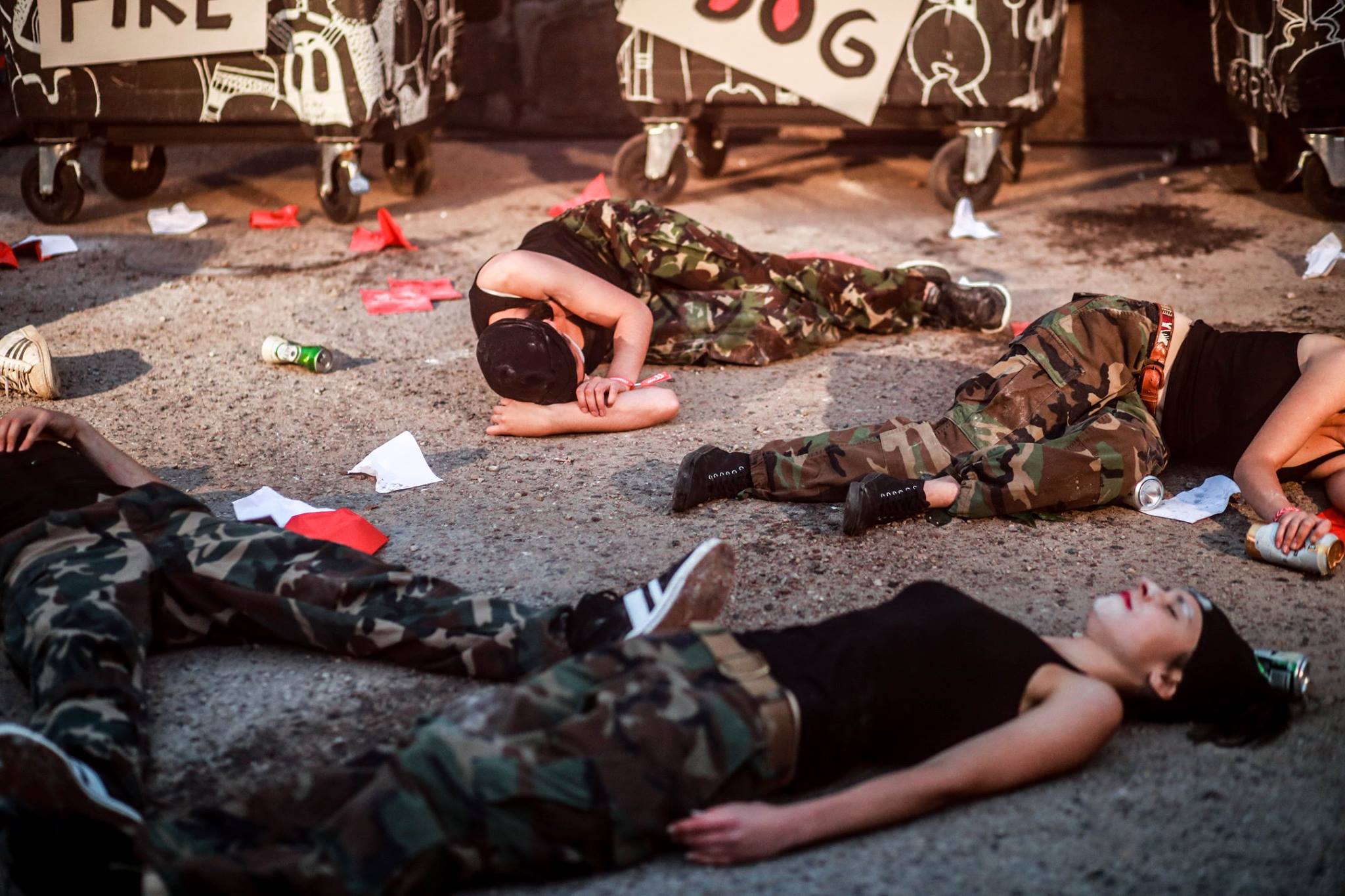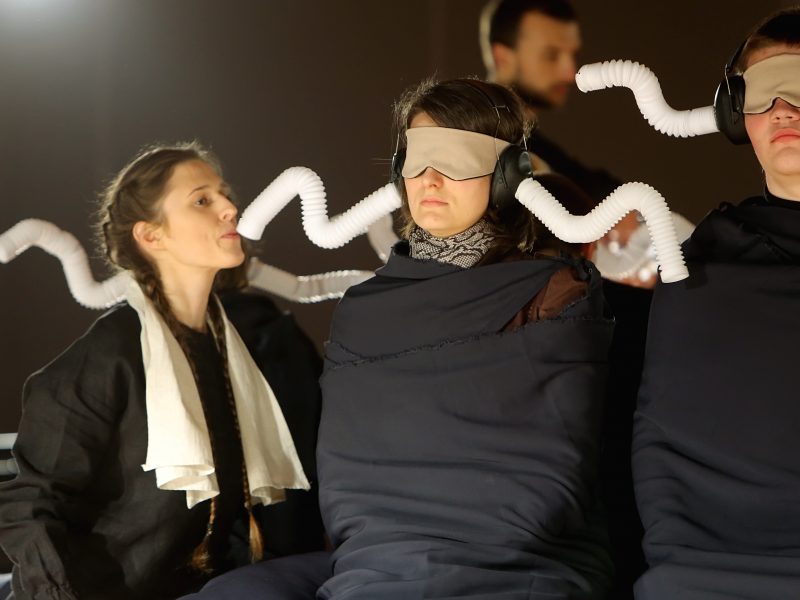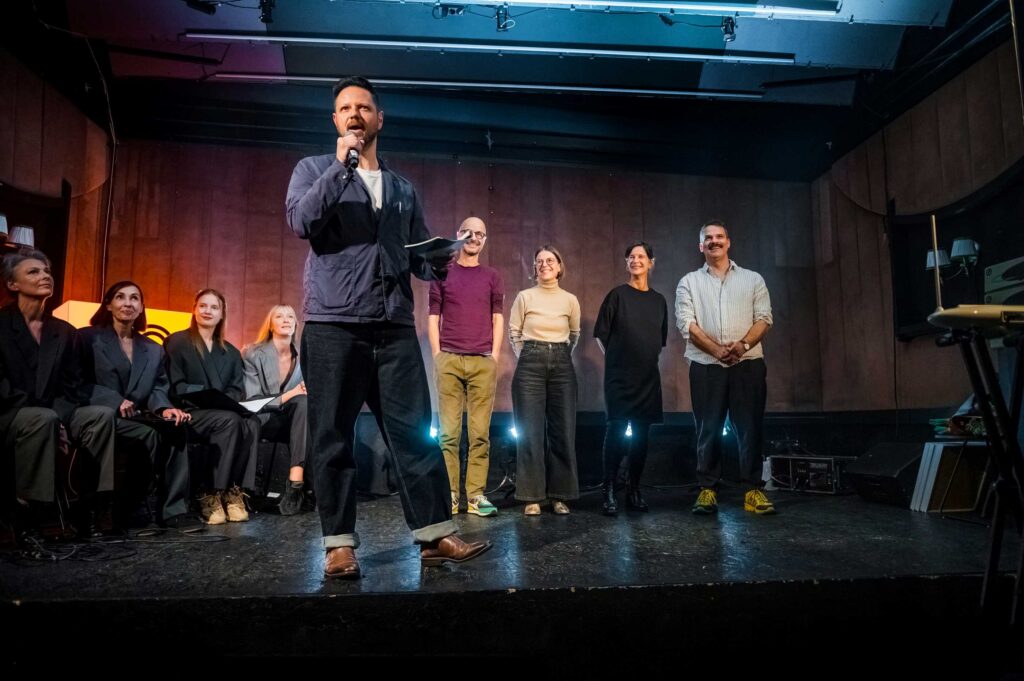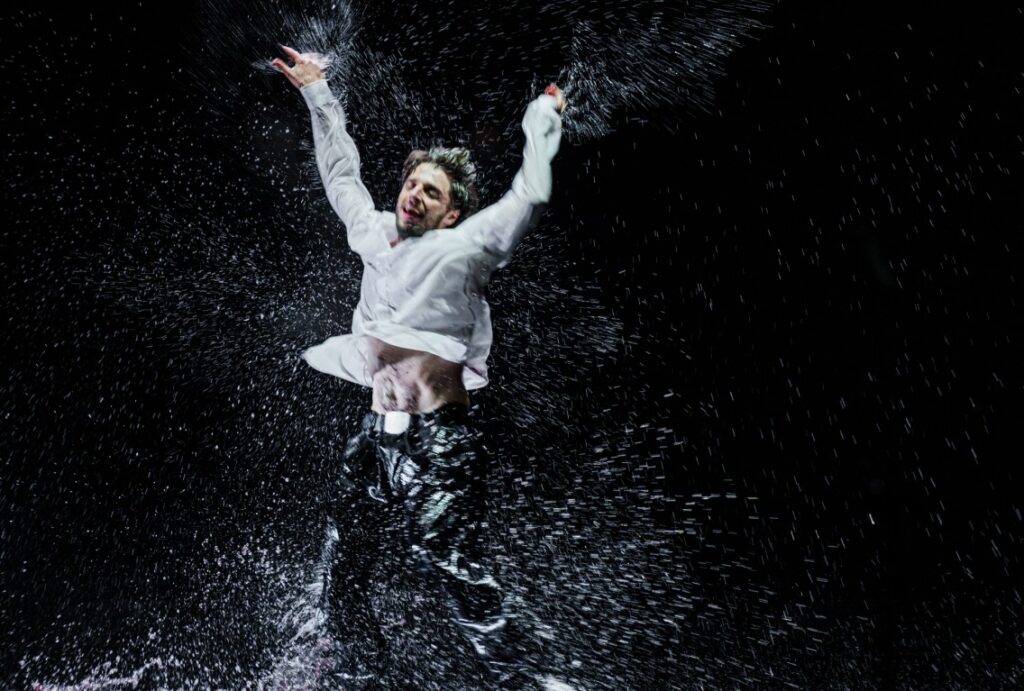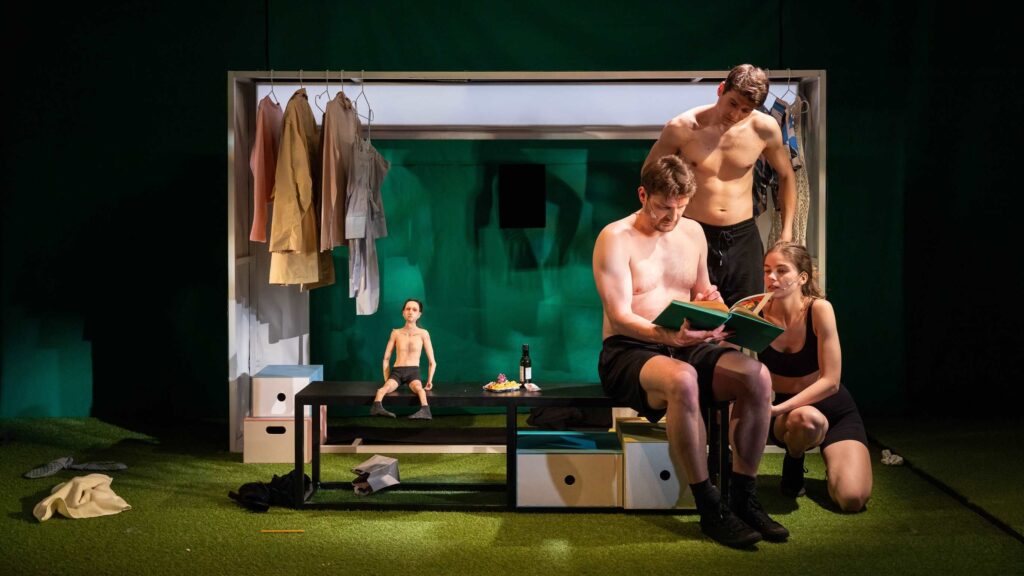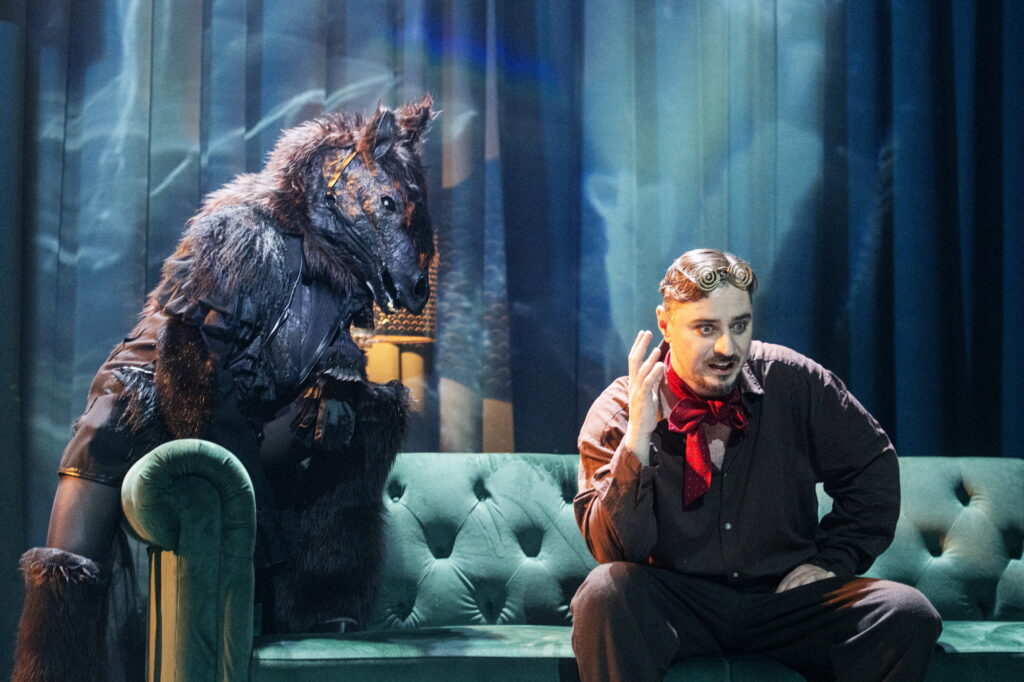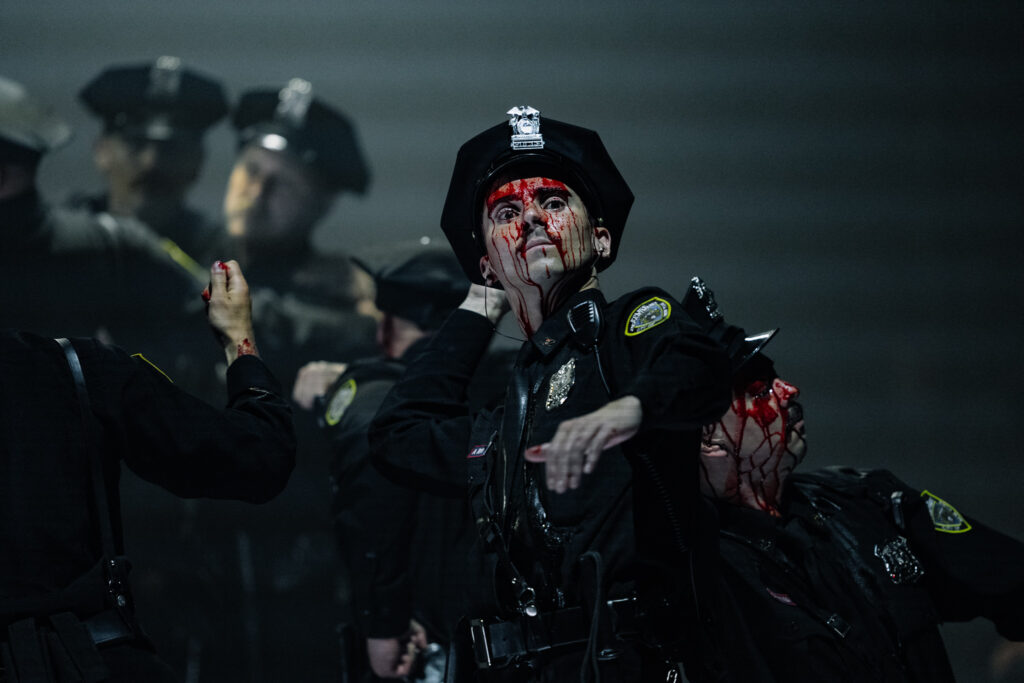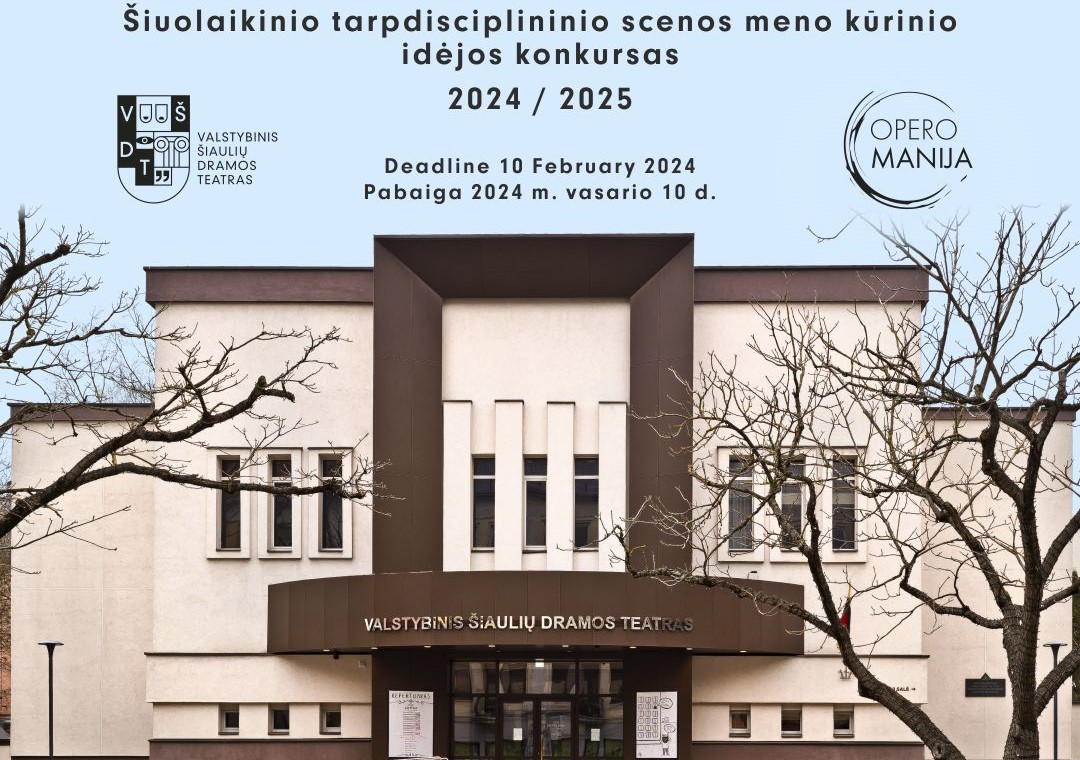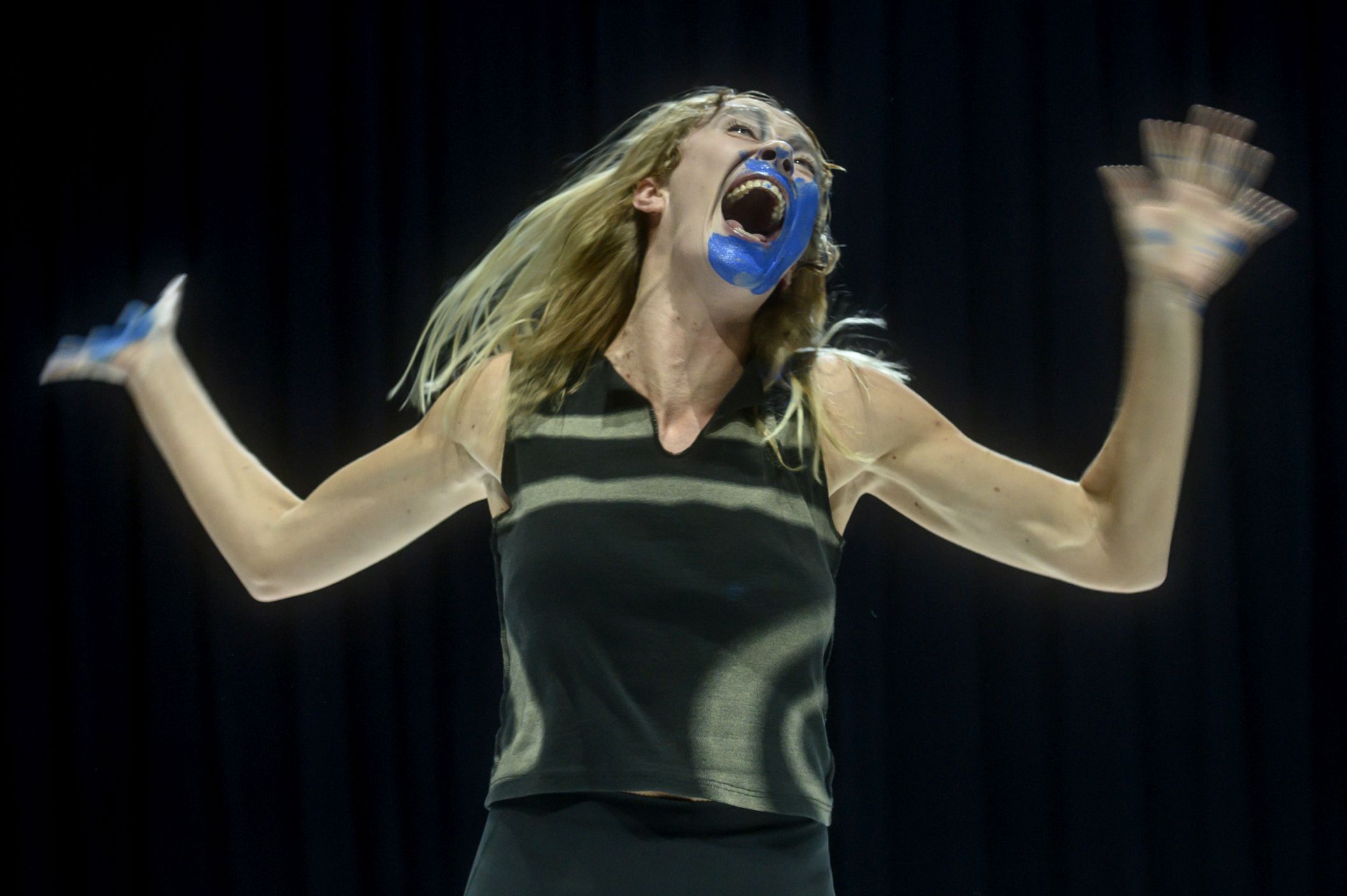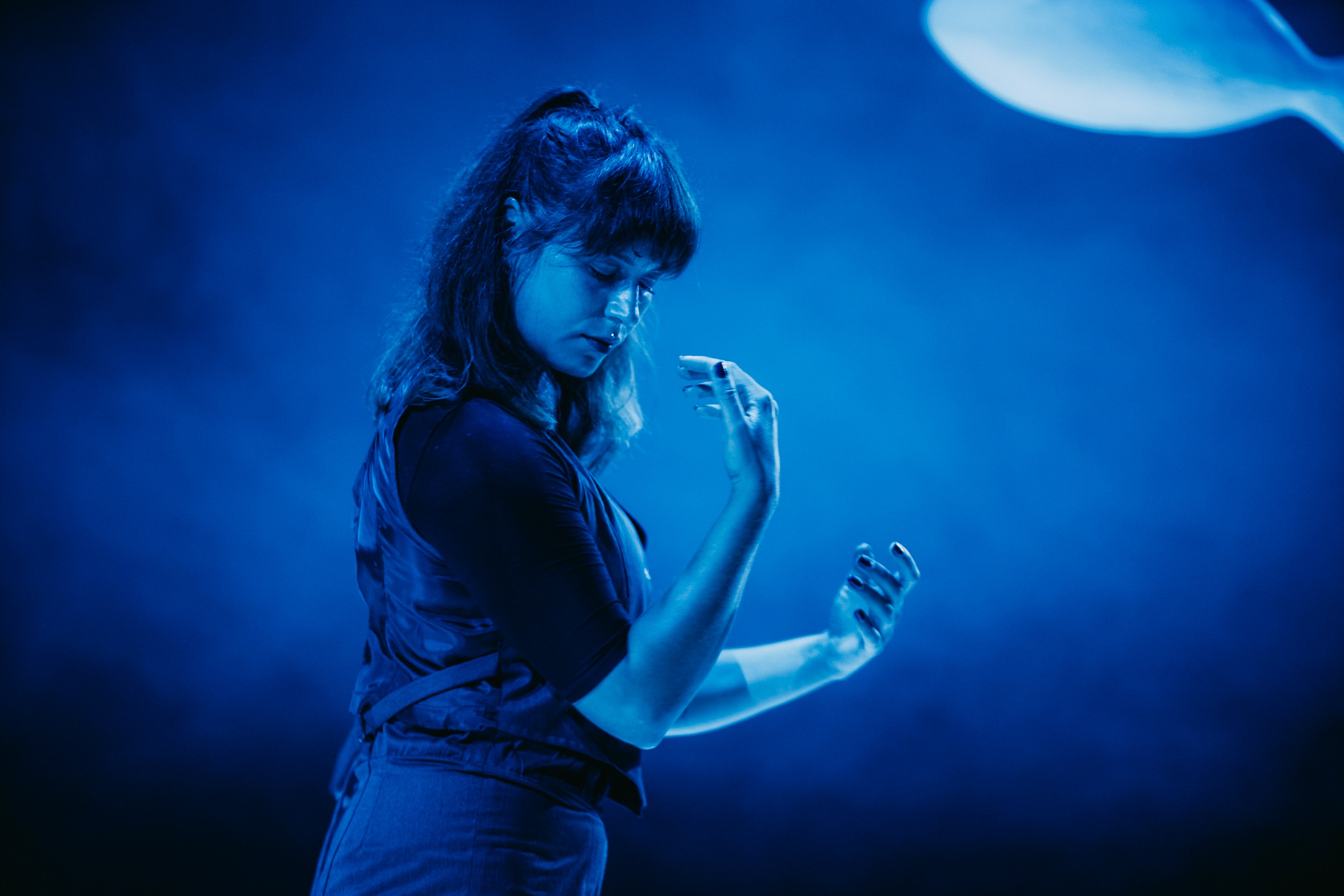Creators and audiences, it seems, have already got used to the familiar everyday director's theatre. However, for the past few years there has been observed a higher activity and visibility of artists and their groups who offer alternative visions of theatre. Not only do they offer different performances, but they also refuse to team up with renowned directors or choreographers.
Theatre that can be touched, smelled, and tasted
In 2012 a class of actors-puppeteers graduated from the Lithuanian Academy of Music and Theatre. Most of them are working in national puppet theatres. However, one of the graduates Karolina Žernytė chose another path - she embarked upon creating a theatre of senses. The first performance Bee's Tales for Six Senses was staged together with fellow graduates back in 2010. Following several years of trips to Russia where she worked on similar performances in puppet theatres, now K. Žernytė is establishing her own theatre, assembling a company in Vilnius and staging performances in Lithuania.
As K. Žernytė has told many times, the concept of the theatre of senses was influenced by a will to serve the audience, especially for those to whom traditional theatre is hardly accessible.
In order to expand the possibilities for theatre perception, K. Žernytė started working with blind people. The first performance served as a means for exploring what and how other senses can be used for telling the story in theatre. In such performances hearing is the most important sensation, however, K. Žernytė and her team also employ other sensations of the performance's participants, such as touch, taste and smell. By manipulating these senses they provoke various emotions and interpretations for sightless participants. It is very interesting to observe that, thus the seeing part of the audience is given the possibility to see the methods by which illusions are created.
K. Žernytė's theatre of senses functions in a different manner than traditional theatre establishments. The company creates performances by analyzing their own senses and means by which various emotions of participants can be evoked. Moreover, the company collaborates with the Lithuanian Association of the Blind and Visually Impaired, thus creating a community that gathers not only during the performance, but also meets afterwards in order to join a discussion and search for new ways of operation.
Contemporary theatre partisans
A syndicate of wide artistic profile “Bad Rabbits” also dedicates its creative work to the audience, only in a completely different manner than K. Žernytė. Formed as a company of street theater (which is almost absent in Lithuania), it provokes, invites to think and participate. One of the first works by this syndicate is the street performance The Birth and Death of Democracy or Tir de la Libertad. During this performance the audience was drawn into a game that not only made a short account on the history of democracy, but also spoke of balance of power in a state and in theatre. The audience of the performance wasn't wide, it didn't get many reviews by theatre critics, which is only natural - after all, the team considers itself partisans of theatre.
“Bad Rabbits” create more than street performances: they have pieces for closed spaces, but not a single one of them was made for conventional theatre. The ironic performance-simulator CTC or Contemporary Tolerance Center was shown in the culture bar “Kablys”, and a recently revisited Solitude. 1991 was performed in a recently opened “House of Puglu”. Even by choice of spaces for their performance the company speaks of an alternative to theater ruled by directors, where the only function of the audience is to sit quietly in the dark and observe the performance.
„Bad Rabbits“ are not content with taking the darkness and possibility of calm observation away from the audience. They are also transforming the role of the creator and aim at being more partisans than famous artists. Having hidden their identities at the beginning of their activity, the members of “Bad Rabbits” are now recognizable, but they still avoid giving credits during their performances.
As anonyms they are able to freely speak on the stage or in the street, to provoke and interact with the similarly anonymous audience. They can freely be partisans of theatre who care the least about aesthetics and the most about stirring inner peace.
Auto ironic and open actors-dancers
“Stage Strangers” is also a relatively new group of artists who express a strong will to avoid creating conventional theatre. Their first performance (not) really a performance Contemporary? was promptly noticed and received positive reviews. Agnė Ramanauskaitė, Mantas Stabačinskas and Paulius Tamolė got together in 2013 in order to tell a story about the specifics of Lithuania's contemporary dance.
Probably the most attractive aspects of Contemporary? were irony and open discussion about self - experiences, expectations, strengths and weaknesses.
In Contemporary? dance is expressed not only through dancing itself, but also through dramatic acting. This was done not without a reason. All the three performers are dancers, however, A. Ramanauskaitė has had many roles in drama theatre, while P. Tamolė lately does only acting, not dancing. Naturally, both Contemporary? and their most recent work Take Over, that was made in collaboration with the actor Dominykas Vaitiekūnas, feature a combination of different stage experiences and possibilities of actors.
Another interesting feature of this group's performances is the determination to work without directors or choreographers. Both performances were created in collaboration with playwrights - the first was staged with the help of Sigita Ivaškaitė, and the second, Take Over - together with Vlada Kalpokaitė. Both of them are theatre critics, therefore first and foremost their task was not to write plays, but to help crystalize the concept itself, to select main stories, scenes, to help create the performance's dramaturgy, and in such a way to help shape a new theatre's language that is awaited by makers, theatre critics and audiences.

